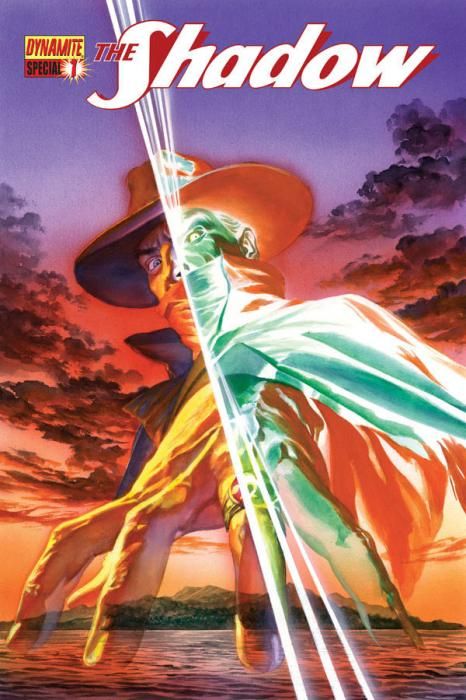In "The Shadow Special"#1, Scott Beatty begins "Veterans of a Foreign War" in an atmospheric way, reminiscent of an old-school noir mystery. Cranston's internal monologue in textboxes alternates with dialogue in a satisfying balance of action and thought as he and Margo Lane allow themselves to be drawn in by Howard Griffin, a man Allard trained during the Great War.
Roman Cliquet's clean, angular lines and costume design work well for a period look. His panel compositions make great use of camera angle and subtle tilting to convey motion and suspense. His art has lovely, retro detail in the city scenes, and his interiors are rich with inky detail in the hallways, ceilings, draperies and windowpanes. Dinnertime dialogue is accented with minimalist but atmosphere-defining plumes of cigarette smoke.
As "The Shadow Special" #1 swaps out settings and moves into combat within a jungle plantation, however, the art suffers. One villain's scars seem fake because they all have an "X" shape. Another villain shows up to battle naked and wrapped in barbed wire. This has symbolic significance, but the unreality of it is still jarring. Cliquet's action sequences are sketchy, chaotic and ugly. This is in keeping with story's morality - that war is an ugly place where men learn to do ugly things - but it's still a visual letdown. The abrupt visual wrap-up, with a pretty but cliched image of a couple on a beach, mirrors the too-neat resolution of the story's central conflict between The Shadow's past self and his present.
All of the delicious buildup of the first third of "The Shadow Special" #1 leads to a shallow revelation. The climax of the story is the exact moment that I lost my suspension of disbelief. All subtlety is lost as Howard Griffin leads Lamont Cranston into a basement lair on an unmapped jungle island. Even the basement setting itself is a cliche. A touch of the supernatural has always been a feature of "The Shadow," but here its sudden emergence feels clumsy instead of creepy.
What Cranston and the reader learn at the story's climax has only one purpose in the plot: to confirm from the villain himself what The Shadow already "saw" in the hearts of men, giving him a vigilante's green-light to be judge, jury and executioner. The Shadow's harsh justice is only excusable by today's standards if the men he condemns are truly lost to rehabilitation.
The revelation of the source of evil in "Veterans of a Foreign War" can be read metaphorically instead of literally, but it's no less of a storytelling bludgeon, either way. A Faustian bargain for the villains of "Veterans of a Foreign War" lacks depth and pathos, since the story isn't told from Faust's perspective. The Shadow serves up poetic justice, but it's of the crudest kind, and the ending feels too sudden and clean for the story's grand, messy themes of WWI, identity, institutionalized violence and the origins of evil.
Not only is the resolution unworthy of the ominous, classic-feeling exposition, but there's also a sense of being shortchanged in the story's moral calculus, as if the reader was presented with the possibility for a complex problem that ends up being solved as simply as adding up 2 + 2 = 4. A nuanced examination of war and morality is dodged in favor of mysticism and a too-neat denouement. Beatty overreaches in attempt to add some darkness to The Shadow's past while still trying to keep the hero's hands clean.
In "The Shadow Special" #1, Beatty and Cliquet get the pulpy, retro noir tone right -- not a trivial achievement -- but nailing the look and sound doesn't mean that there's substance beneath the style.

